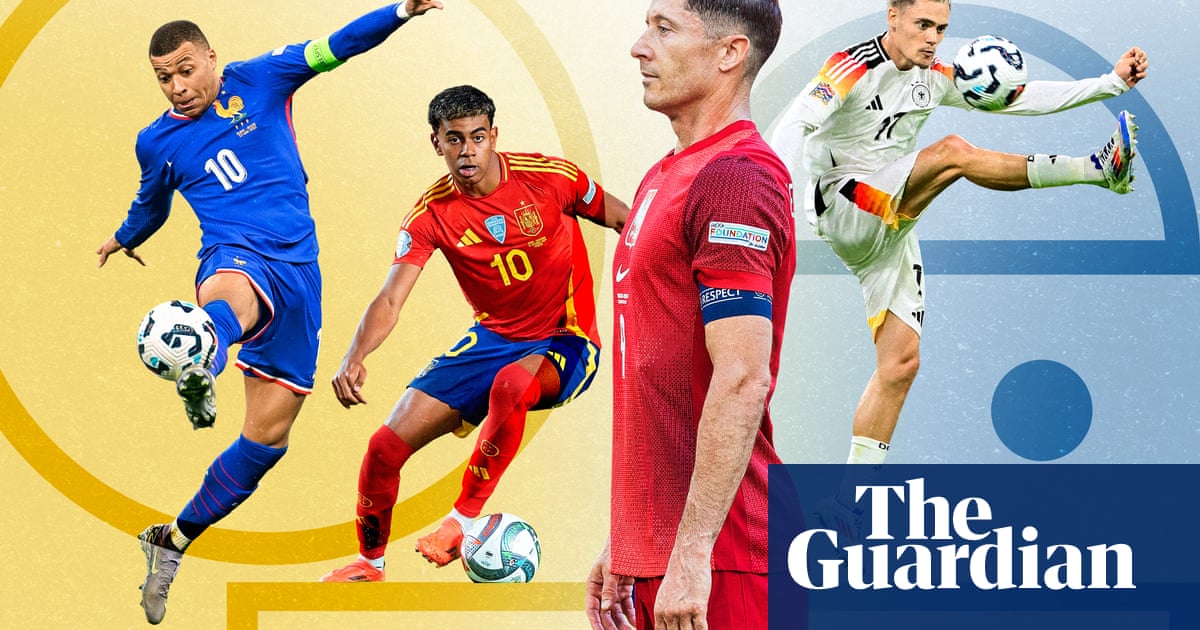Imagine the scene: the television is on, the screen showing images of a packed stadium. Rodri collects the ball in midfield and launches it down the wing to Lamine Yamal, who switches play to Kylian Mbappé; the Frenchman swivels past two defenders before crossing for Robert Lewandowski, who surges forward and finishes with precision past Ederson in goal. Europe are leading the Rest of the World 1-0.
Could theEuropean Unionhave a football team, even if it is just for one game every other year? Why not? It is an ambitious idea that, paradoxically, could be both concrete and relevant. In an era marked by challenges to the cohesion of the union, conceiving a footballing Dream Team of the 27 countries is, in fact, one of the more plausible ways to give the continent a dimension beyond the economy or, as is highly relevant at the moment, the military.
Glenn Micallef, the European commissioner for intergenerational fairness, youth, culture and sport, says: “A collective EU football team would create a sense of belonging and reinforce our common European identity. It would strengthen our unity and solidarity and be a strong symbol.
“Imagine a Europe where my children and grandchildren can celebrate goals scored by a European team. Such a team could serve also as a diplomatic tool. The soft power of sport has hard and positive effects – not only in the football arena but also in the global arena.”
It would, in essence, be a small step towards uniting the people within the union through the universal language of football. Other sports have shown it can be done, with competitions such as golf’s Ryder Cup and the Laver Cup in tennis.
Mauro Berruto, a former Italy men’s volleyball team coach who is now head of sports for his country’s Democratic party, recognises the value such a team would have but also has reservations. “It would be very complex because of how football is structured and how we, as football fans, are made,” he says. “Today, it’s hard to get as passionate about a European team as we are about the Italian, French, or German national teams. But I think it’s time, even from this perspective of sport, to send a signal, to make a voice heard. Why not?
Berruto, whose Italy teamwon bronze at the 2012 London Olympics, adds: “It would also serve to create visions and possibilities.” Berruto says it is important, however, that the initiative comes from the sport and not from politicians, as seen with the potential ice hockey games between the USA and Russiaproposed by Vladimir Putin and Donald Trump. “When it comes from someone trying to use sport as a tool I become suspicious,” he says.
The idea that football can be used as a vehicle for identity and unity resonated with the Italian writer and director Pier Paolo Pasolini, for whom the sport represented an authentic popular passion, almost a universal language, but above all a collective ritual that might transcend social and geographical divisions.
An EU national team could tap into this widespread passion to create a sense of belonging and shared identity. Breaking down barriers and creating connections between individuals as well as entire nations would be the true ambition of such a project.
Marco Bellinazzo, a journalist focusing on the connections between sport, politics and finance, sees it differently, saying: “A team like this would be revolutionary in terms of building a European identity.”
National identity is tied to sport, especially football. Just think of Palestine, granted Fifa membership in 1998 but still not a full member of the UN. For the European Union, it could be just as important as it risks becoming increasingly marginalised. The creation of sport’s new world order revolves around the hegemony of the US on one side and the Middle East on the other, with Russia out in the cold and China’s investment in football reduced for the time being.
Sign up toFootball Daily
Kick off your evenings with the Guardian's take on the world of football
after newsletter promotion
Bellinazzo adds: “It is a situation that further risks marginalising European football and European identity. Clearly, European leagues, especially the Premier League, still have a dominant role in terms of tradition and economic strength but it is evident that they are increasingly at risk in the long-term hegemony. Consider that in the last four or five years, over a hundred European football clubs have been acquired by investment funds and North American owners.”
There would be obstacles, such as finding space in an already crowded calendar, but if there is a true desire to build a European identity through sport, logistical obstacles could be overcome.
Here is my team. What would be yours?
